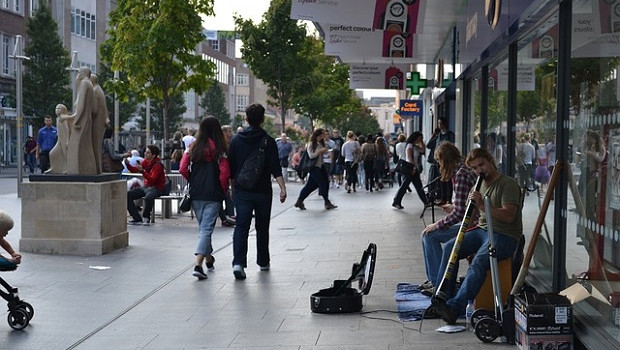UK inflation hits 41-year high in October

Inflation once again surged in October, official data showed on Wednesday, coming in well above expectations.
According to the Office for National Statistics, consumer price inflation rose 11.1% in October year-on-year, up from 10.1% in September and the highest rate since 1981. Most analysts had been expecting CPI of around 10.7%.
The rate was pushed higher by higher gas and electricity costs - despite the introduction of the Energy Price Guarantee - and rising food prices.
Electricity and natural gas prices surged 88.9%, from 69.8% in September, while food inflation hit 16.4%, the highest since September 1977, compared to 14.6% a month earlier.
The biggest downward contribution was transport, principally motor fuels and second-hand car prices.
Including owner occupiers’ housing costs, CPIH rose 9.6% year-on-year, up from 8.8% a month previously. Housing and household services, including electricity, gas and other fuels, was the largest upward contribution along with food and non-alcoholic beverages.
Core inflation, which strips out more volatile elements, held steady at 6.5%, missing forecasts for 6.4%.
Samuel Tombs, chief UK economist at Pantheon Macroeconomics, said: “The real bad news in this report is that the pace of core price rises hasn’t eased yet, despite the recent softening in consumer demand. The 0.7% month-to-month rise in the core CPI exceeded its average October increase in the 2010s by 0.5 percentage points.
Looking ahead, he added: “We expect the headline rate of CPI inflation to fall gradually over the coming months, reaching about 9% in March; October should be the peak.
“Beyond the first quarter, the outlook for CPI inflation is extremely dependent on the government’s approach to subsidising energy prices.”
Alpesh Paleja, lead economist at the CBI, said: “There are signs that we are reaching [inflation’s] peak. Global price pressures appear to be easing, and forecasts predict that inflation could fall from double digits to high single digits over the course of 2023.
“Next year’s outlook, however, is clouded by uncertainties. High inflation, alongside a weaker economic outlook, will make for some tough choices for the chancellor during [Thursday’s] autumn statement.”
Naeem Aslam, chief market analyst at AvaTrade, said: "The data has confirmed that the cost of living crisis is much more serious than previously thought.
“British people are really struggling with their daily lives. The sad fact is, that with inflation this high, the pressure is even greater on the Bank of England to do even more in terms of its interest rate hikes.
“The [autumn statement] on Thursday will only make matters worse, as they will have to pay more tax from their miniscule earnings to fill the government coffers.”